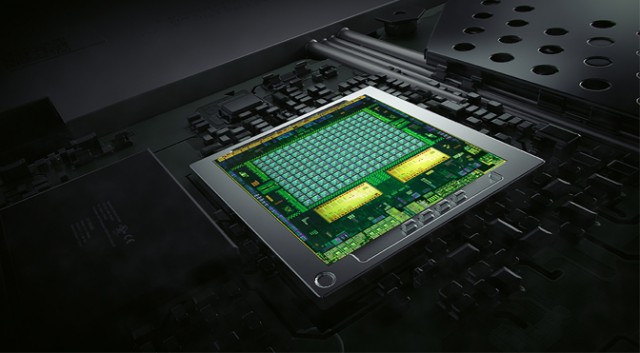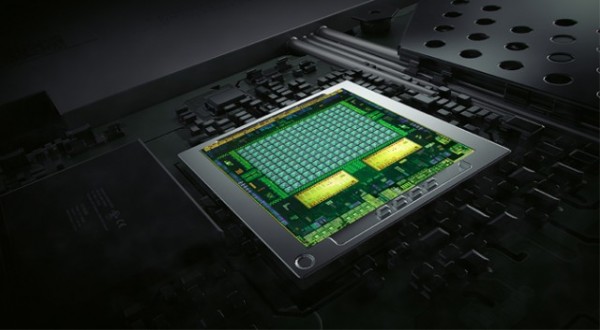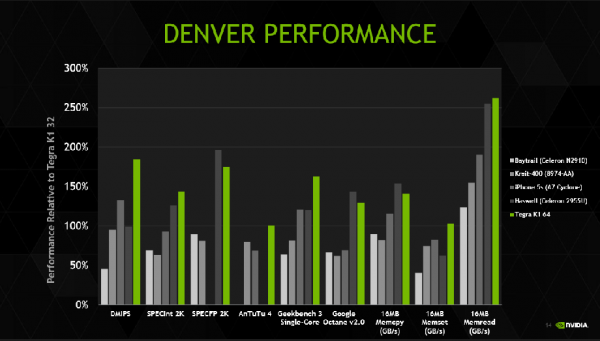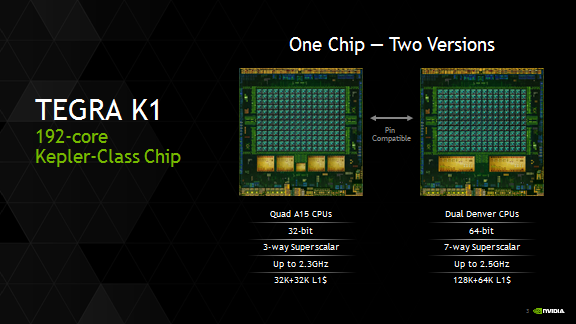Nvidia has just released a benchmark of its 64-bit ARM processor, the Tegra K1 “Denver”, claiming that it will offer PC-like performance in a tablet form factor.
With the success of the company’s previous Nvidia Tegra K1 32-bit, ARM Cortex-A15 Quad-Core processor with paired 192-core Nvidia Kepler graphics announced back in CES 2014, Nvidia is now ready to push its new Tegra K1 processor with two Denver cores and a 192-core Kepler GPU that is expected to be the first 64-bit ARMv8-based architecture to be installed in Android mobile devices.
Both CPU cores are very large and will be shipped with a clock speed of 2.5GHz and include a 128KB, 4-way level 1 instruction cache, a 64KB 4-way level 2 data cache, and a 2MB 16-way level 2 cache, all of which can service both cores. In addition, there is also a dedicated 128MB cache to improve performance for frequently used operations. According to NVIDIA, the Dynamic Code Optimization works with all standard ARM-based apps and does not require developers to make any changes to their software.
The Nvidia K1 Denver may only feature a dual-core CPU but NVIDIA says it can be faster than existing quad or octa-core processors due to these optimizations and features unique to Denver. Unlike Nvidia’s 32-bit Tegra K1 processor found in recent devices like the Nvidia Shield Tablet and the Xiaomi Mi Pad, the new 64-bit version comes with two Denver cores that is capable of executing a staggering number of seven instructions per clock cycle versus the previous 3-way superscalar.
On the GPU side of things, NVIDIA has retained the 192-core Kepler GPU architecture which was also present on NVIDIA’s desktop graphic cards from the previous variant.
NVIDIA has also claimed that it is already working on optimising the new Tegra K1 Denver chip for Android L. While Apple’s 64-bit processor architecture has been around for a while, NVIDIA will be proudly showing off their Tegra K1 Denver processor as the first to be marketed as a 64-bit Android CPU – even if Qualcomm said the same thing eight months ago with the Snapdragon 410. It could probably make its debut in the rumoured HTC Volantis, Nexus 9.
[Source: NVIDIA]





